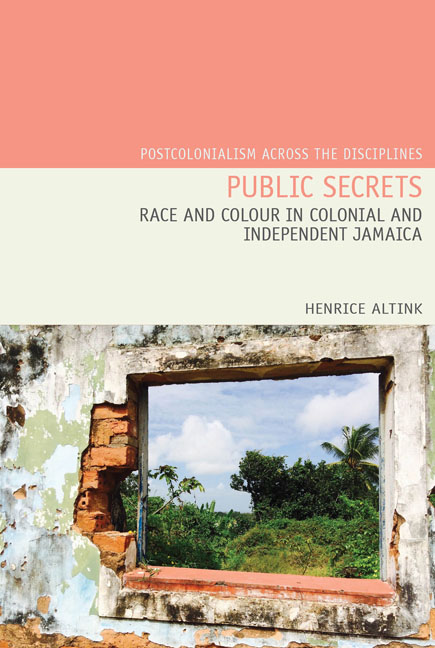Book contents
4 - Commitment to Colour-Blindness
Summary
The 1962 constitution not only enshrined the right to ‘freedom from discrimination’ but also various other ‘fundamental rights’, including the right to vote in free and fair elections, the right to equality before the law, the right to freedom of expression, and the right to peaceful assembly and association. Proceeding in a chronological order and focussing on the right to participate in politics (as voters and politicians), the right to participate in civil society, and the right to procedural fairness in law, this chapter tries to assess whether there was a correlation between the enjoyment of ‘fundamental rights’ and race and skin colour. Was it more difficult for dark-skinned Jamaicans to cast their vote or get a fair hearing in court than white or light-skinned Jamaicans? If so, why? And did this change over time as dark-skinned politicians and judges became more numerous? In addition, this chapter will explore how committed the pre- and post-independence governments were to colour-blindness. What did they do or fail to do to achieve a nation where race and colour no longer affected a person's life chances? How much and why did they insist that Jamaica was a nation where all races and colours lived in harmony? And how did they respond to challenges to this ideology of racial harmony?
The following will show that although there was no de jure discrimination before independence, lawful practices had racial effects so that dark-skinned Jamaicans struggled more to enjoy civil and political rights than white or light-skinned Jamaicans, and that a more diverse body of politicians and justices after independence did not result in a colour-blind nation. In fact, it will be argued that for various reasons in the years leading up to and following independence, African-Jamaican politicians were more committed to presenting Jamaica as a racial paradise than undertaking action to create a nation where race and colour truly no longer mattered. Consequently, in Jamaica as in other parts of the Caribbean and Latin America in the post-war period, a rhetoric of inclusion coexisted with exclusionary practices.
1918–43
Crown Colony government was in place in Jamaica until 1944 and centred around the LegCo. It was not until 1920 that the first African Jamaican was nominated to the LegCo: The Reverend Alexander A. Barclay. In 1925, Barclay became an elected MLC and it took the adoption of a new constitution in 1944 for another African Jamaican to be nominated.
- Type
- Chapter
- Information
- Public SecretsRace and Colour in Colonial and Independent Jamaica, pp. 160 - 208Publisher: Liverpool University PressPrint publication year: 2019



